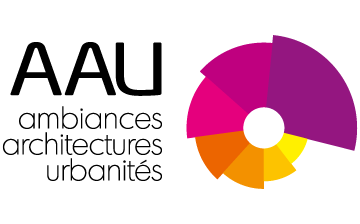Conférence de David Howes « Sensory anthropology and the study of atmospheres » le 29 janvier à 18h30 à l’ENSA Grenoble
Actualité publiée le 16 janvier 2020

AAU-CRESSON organise une nouvelle école d’hiver sur le son et les sens, du 27 au 31 janvier 2020 dans le cadre de la Semaine Internationale du Son.
Dans ce contexte, le professeur d’anthropologie David Howes viendra du Canada exposer ses travaux et ses idées sur l’anthropologie des sens et les « sensual studies ». L’enjeu est d’apporter des éléments pour réfléchir à la manière dont nous fabriquons, transmettons, partageons et modifions les environnements sensibles et, en retour, à mieux comprendre comment ceux-ci nous modifient et affectent nos manières d’apprendre et de faire ensemble.
Cette conférence sera suivie d’une « sensory walking tour » avec David Howes le lendemain matin 30 Janvier 2020.
Résumé :
Sensory anthropology and the study of atmospheres
This presentation offers an overview of the sensory turn in anthropology, which crystallized in the early 1990s and has since spread to other disciplines. Sensory anthropology stands for a cultural approach to the study of the senses and a sensory approach to the study of culture: the senses are treated as both object of study and means of inquiry. The preferred method of sensory anthropology is sensory ethnography, as summarized by François Laplantine in The life of the senses: Toward a modal anthropology: ‘the experience of [ethnographic] fieldwork is an experience of sharing in the sensible [partage du sensible]. We observe, we listen, we speak with others, we partake of their cuisine, we try to feel along with them what they experience” (2015: 2). The emphasis is thus on achieving empathy and understanding through “participant sensation.”
Sensory ethnography departs in this respect from the standard anthropological method of “participant observation” by abjuring the status of the observer and seeking instead to sense and make sense along with others. Various case studies drawn from the author’s own ethnographic fieldwork in Papua New Guinea will be presented by way of illustration of the methodology in action. The focus then shifts to the question of how best to communicate anthropological knowledge: the creation of “performative sensory environments,” which engage all the senses in a kind of symphony of sensations, is presented as an alternative to the conventional ethnographic monograph (with its verbalism) and ethnographic film (with its heightened visualism). The presentation concludes with some reflections on the extension of sensory ethnography to the study of atmospheres (after Gernot Böhme) and the burgeoning field of sensory design.
Contact : Grégoire Chelkoff
* David Howes is Professor of Anthropology / Co-Director, Centre for Sensory Studies
Director, Centre for Interdisciplinary Studies in Society and Culture
Concordia University, Montreal-Tiohtià:ke, Kanien’kehá:ka territory
Adjunct Professor, Faculty of Law, McGill University
Catégorie : AAU, CRESSON
Tags : Concordia University, David Howes, Ecole d'hiver sur le son, Sensory anthropology, Sensual studies

